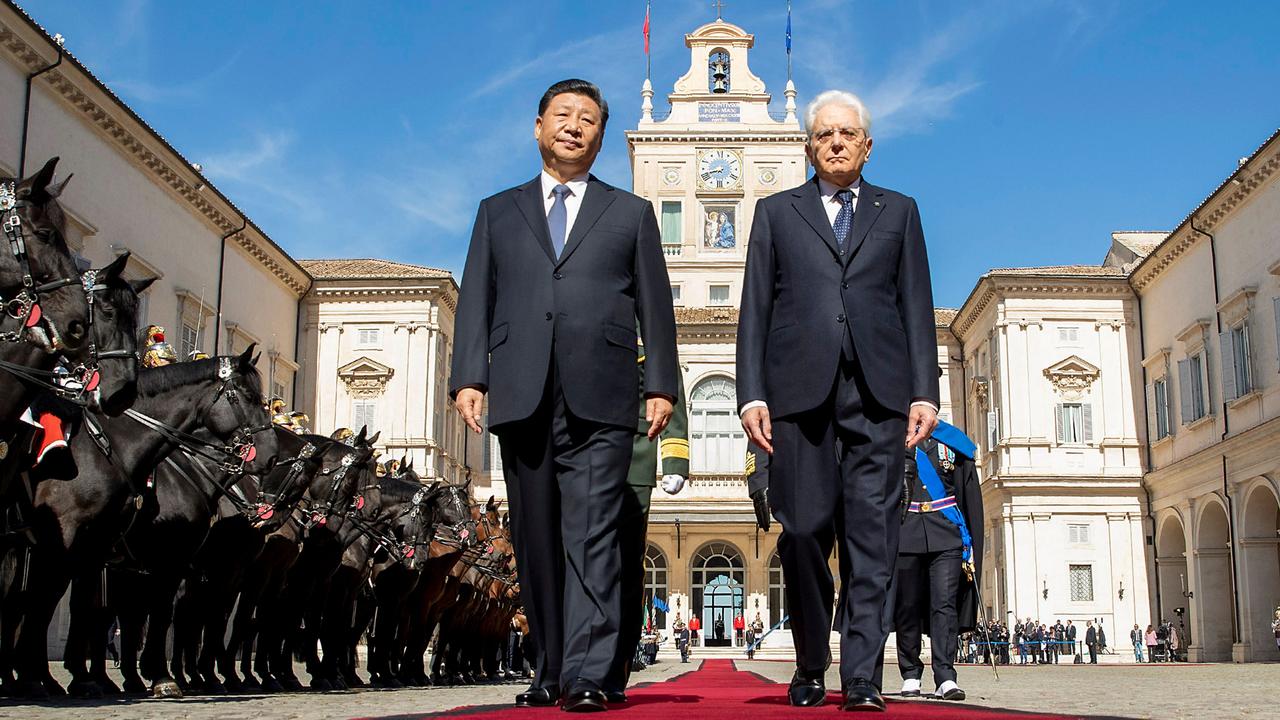China’s political system in based on command and control
Xi Jinping has done away with the meritocratic system introduced by Deng.

The turmoil in Australia’s political leadership, matching the anguish at the top of our biggest finance houses, is prompting some to ponder where we might look for better models — maybe China?
The chief executive of Anglo American, Mark Cutifani, told colleague Paul Garvey this week that he thought China indeed possessed a better system for developing leadership talent than any Western country — with national leaders first proving themselves in the provinces: “They develop their talent the way we would develop talent in our business.”
By the time a leader is “elected”, he said, perhaps using the wrong verb — “they’ve generally come through a fair baptism of fire”. In contrast, the volatility at the top in Canberra deters qualified people from entering politics.
So what kind of leadership do we see in China?
It’s a huge country, education levels are good, so naturally it produces some terrific leaders.
But the way they are chosen, the chains of command, the way they operate, tend to be strikingly different from Australia.
Where the corporate model has been adopted widely here — in institutions ranging from universities to sports teams — in China politics trumps all.
The bosses of the state-owned enterprises are communist party officials. They sometimes shift, bewilderingly swiftly, from executive chairman to deputy party secretary, say, of a province.
The most powerful model of a Chinese leader for the past 42 years — since Mao Zedong “went to Marx” — is the incumbent, Xi Jinping. How he was selected by the party central committee is not clear, although the choice would have involved consultations with leading powerbrokers including retired leaders.
His style is all-encompassing. He is described by Australian sinologist Geremie Barme as “chief executive of everything”. He chairs all the most important “leading small groups” — opaque as to membership and methodology — that determine the party’s key policy positions.
The Politburo Standing Committee is no longer the locus of real power. Xi instead appears to operate with a small circle of trusted advisers, though no one is sure who they are.
He has in effect done away with the meritocratic system introduced by Deng, with term limits abolished six months ago. Instead, Xi talks of “red genes” — such as his own, as the son of a late vice-premier — as crucial for the legitimacy of leaders.
An acquaintance who was promoted to a senior prosecutor’s role in a province told me how, although a party member, he lacked the connections including family provenance to climb higher, so shifted — with great success — to the private sector.
Xi has worked hard to reduce the corruption that routinely required promotions to be bought, but it’s too early to know whether this has been expunged entirely.
But there has been no change in the pattern that accountability works up but not down.
In the business world, punters follow the fortunes of the leaders obsessively. In Hong Kong, many thousands have sought to emulate every detail of the investing pattern of “Superman” Li Ka-shing.
In recent days, the share price of Chinese e-commerce corporation JD slumped 16 per cent after it was revealed CEO Richard Liu had been arrested — and released pending investigation — over a claimed sexual offence in Minneapolis. The company’s value is bound tightly to its founder’s personal fortunes.
The announcement that Alibaba founder Jack Ma is stepping aside has also caused palpitations among investors.
Alistair Nicholas, CEO of Sydney-based public affairs consultants Cornerstone Group, lived in China for 13 years and now advises business on China strategies and Chinese investors in Australia on government relations. He told me that with private business still a relatively new concept — it is only 40 years since Deng Xiaoping opened up the economy to commerce — there are few company leaders who have grown up in modern businesses.
“Concepts such as delegation of authority and responsibility are still not ingrained,” Nicholas says. “Many Chinese companies operating in Australia still have very little leeway to take even the simplest of decisions. Everything needs to be referred back to HQ in China.
“Even where Australians have been hired in management positions because of their local knowledge and experience, a lot of decisions are still referred back. That obviously slows down the decision-making process.”
He says: “Business leadership and management skills have been learnt from what is essentially a command and control economy where decisions flow from the top down. Everything has to wait for the head of the company to agree or make the final decision.”
Sometimes even private Chinese businesses take their lead from the central government, he says. “Chinese companies rarely think in terms of shareholder value when it comes to business strategy. If the government says it wants Chinese companies to stop investment in a particular sector — no matter the sector’s profitability — they change their business strategies overnight.”
For instance, Beijing announced in 2016 that Chinese companies should stop investing in property and entertainment overseas. As a result, the world’s largest developer and cinema owner Wanda started to divest some overseas holdings.
Such trends make it hard for firms like Huawei to obtain treatment as truly separate from government requirements.
“Until Beijing allows private businesses to operate unencumbered by political exigency it cannot ask that the West treat companies, especially in sensitive sectors, on an equal footing to private companies from real market economies,” Nicholas says.
“Indeed, one theory around the ‘retirement’ of Jack Ma is that he is tired of government interference in the private sector.”




To join the conversation, please log in. Don't have an account? Register
Join the conversation, you are commenting as Logout